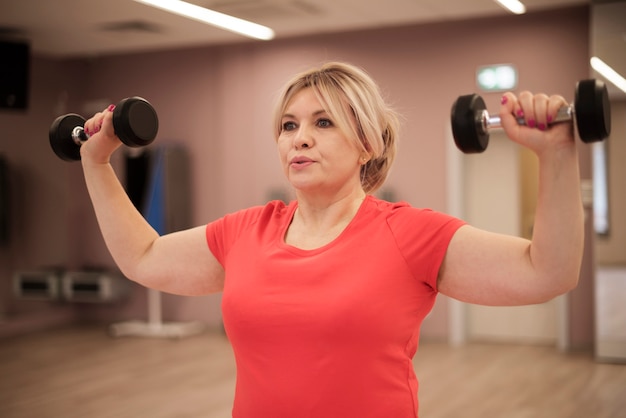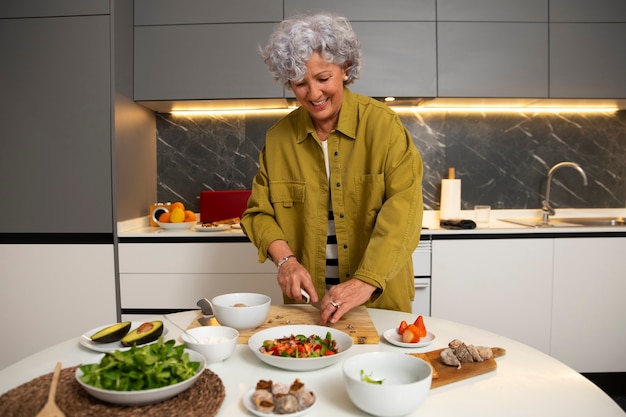Aging is inevitable—but how we age is largely within our control. While many focus on skincare or supplements, subtle daily missteps can quietly erode vitality, energy, and long-term health. The good news? Small, consistent routines grounded in science can make a significant difference in aging with strength, clarity, and resilience.
Drawing from evidence-based research and holistic wellness principles, this guide reveals seven common mistakes that sabotage graceful aging—and offers practical, sustainable fixes you can start today.
After age 30, adults lose 3–5% of muscle mass per decade—a condition known as sarcopenia. Without resistance exercise, this accelerates weakness, slows metabolism, and increases fall risk.
✅ The Fix: Incorporate just 15–20 minutes of bodyweight or resistance training 2–3 times per week. Focus on squats, push-ups, lunges, and resistance bands. Studies show even light strength training improves balance, bone density, and insulin sensitivity.

As we age, our bodies become less efficient at using protein. Many older adults consume far below the optimal 1.0–1.2 grams of protein per kilogram of body weight daily, worsening muscle loss.
✅ The Fix: Distribute protein evenly across meals—aim for 20–30 grams per meal. Include eggs, Greek yogurt, legumes, fish, or lean poultry. Research confirms this pattern supports muscle synthesis better than consuming most protein at dinner.
Poor sleep doesn’t just cause fatigue—it’s linked to cognitive decline, weakened immunity, and increased inflammation. Many assume sleep disruption is a normal part of aging, but it’s often a sign of lifestyle factors.
✅ The Fix: Prioritize sleep hygiene: maintain a consistent bedtime, reduce screen exposure 1 hour before bed, and keep your bedroom cool and dark. Aim for 7–8 hours nightly. Evidence shows even modest improvements in sleep reduce dementia risk and improve mood.

Sitting for long periods—even if you exercise—increases risks for heart disease, type 2 diabetes, and early mortality. Many older adults spend over 9 hours a day seated.
✅ The Fix: Break up sitting every 30–60 minutes with 2–3 minutes of movement—standing, stretching, or walking. Simple habits like pacing during phone calls or using a standing desk can make a measurable difference. Studies confirm that frequent light activity improves circulation and metabolic health.
The brain, like muscles, thrives on use. A lack of cognitive engagement is associated with faster cognitive decline. Passive activities like excessive TV watching don’t provide the same benefits as active learning.
✅ The Fix: Challenge your brain daily. Try puzzles, learn a new language, play a musical instrument, or read complex material. Research shows that lifelong learning and novel experiences build cognitive reserve, delaying symptoms of dementia.
Loneliness is more than emotional—it’s a health risk comparable to smoking 15 cigarettes a day. Social disconnection increases inflammation, depression, and mortality risk.
✅ The Fix: Prioritize meaningful connections. Schedule regular calls, join clubs, volunteer, or attend community events. Even small interactions—like chatting with a neighbor—can boost emotional well-being and longevity.

Chronic stress elevates cortisol, which over time can impair immune function, increase blood pressure, and accelerate cellular aging. Many dismiss stress as 'just part of life,' but unmanaged stress takes a physical toll.
✅ The Fix: Practice daily stress-reduction techniques: mindfulness meditation, deep breathing, or gentle yoga. Just 10 minutes a day can lower cortisol and improve emotional regulation. Studies confirm these habits reduce inflammation and support telomere health—protective caps on chromosomes linked to longevity.
Graceful aging isn’t about perfection—it’s about consistency. You don’t need drastic changes. Start with one habit: take a daily walk, add protein to breakfast, or call a friend weekly. Small shifts compound into significant long-term benefits.
By avoiding these seven common mistakes and embracing simple, evidence-based routines, you support not just longevity—but healthspan: the years lived in vitality, independence, and joy.
Remember: it’s never too late to start. Your future self will thank you.

Wellness

Wellness

Wellness

Wellness

Health

Health

Health

Health
Health

Health

Fitness

Fitness

Health

Fitness

Health

Health